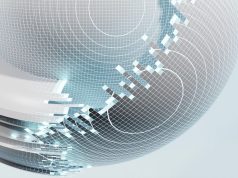| Launch of GRI Agriculture, Aquaculture and Fishing Sector Standard
Three sectors that produce the food and materials that are fundamental to humanity’s survival are being supported to take accountability for their impacts, following the publication today of a new GRI Standard.
While the essential role of the agriculture, aquaculture and fishing sectors in feeding the world is clear to see, clarity on their impacts is not. Use of lands and seas face ever-competing demands, while biodiversity loss and the urgency of climate adaptation demonstrate why greater transparency is essential. In addition, with 2.5 billion people relying on the sectors for their livelihoods, their impacts on economic development and human rights should not be underestimated.
GRI 13: Agriculture, Aquaculture and Fishing Sectors 2022 is the first global and holistic sustainability reporting standard for all companies in the upstream production of crops, animals and seafood, setting expectations for disclosure of their shared and distinct impacts.
Adding to a growing suite of Sector Standards, GRI 13 addresses:
- The topics likely to be material for any agriculture, aquaculture or fishing organization, based on the impacts of these sectors;
- New disclosures on food security, land and resource rights, living wage and income, natural ecosystem conversion, animal welfare, soil health, and pesticides use;
- The multiplying effect of the sectors when it comes to the SDGs – supporting companies to make the connections between their impacts and all 17 Global Goals;
- Policy implications for responsible business, based on international frameworks – as set by the UN Food and Agriculture Organization (FAO), International Labour Organization (ILO), International Maritime Organization (IMO) and others.
Judy Kuszewski is Chair of the Global Sustainability Standards Board (GSSB), the independent entity that sets the GRI Standards. She said:
“There is a paradox in that the ways we produce the food and materials that a growing population requires also result in numerous economic, environmental and social impacts – which in turn put at risk the future viability of world food systems. Addressing this challenge requires concerted, global and multi-stakeholder action.
It’s clear that ‘business as usual’ by companies will not result in the sustainability transformation we need to see. Shining the spotlight on the most significant impacts of organizations involved in crop cultivation, animal production, fishing or aquaculture, GRI 13 brings the clarity and consistency needed to inform responsible decision making.
From safeguarding migrant workers to tackling over fishing, cutting emissions to halting deforestation, GRI’s Agriculture, Aquaculture and Fishing Standard has an enabling role in charting the pathway to a sustainable future for these sectors.”
Viktoria de Bourbon de Parme, Food and Agriculture Lead, World Benchmarking Alliance (WBA), added:
“WBA applauds GRI’s work to improve impact reporting by creating a new global standard for companies that play an important role in our food system. The so urgent transformation of this system requires large-scale and fundamental action, which can only be achieved with multi-stakeholder partnerships at local and global levels, as well as concise, transparent, and trustworthy reporting to hold food production companies accountable.”
GRI 13 was developed by a 19-member multi-stakeholder working group, with agriculture, aquaculture and fishing organizations represented alongside investors, civil society, mediating institutions and labor bodies. It included the following members.
- Dr. Leah Samberg, Lead Scientist for Global Policy, Rainforest Alliance: “Companies in the agriculture sector must play a key role in the achievement of global goals for climate, forests, human rights, and sustainable development. By providing a comprehensive blueprint for standardized reporting on progress toward these goals, in alignment with the Accountability Framework and other guidance, GRI enables downstream buyers, investors, financiers, civil society organizations and other stakeholders to gather the information they need to make informed decisions related to company performance.”
- Joel Brounen, Country Manager with international civil society organization Solidaridad: “For Solidaridad, the new GRI Sector Standard for agriculture, aquaculture and fishing helps to create more transparency across supply chains and will ensure companies communicate better on key issues like living income, economic inclusion and climate adaptation. Reporting on a common set of topics is the starting point for further measurable and verifiable results.”
- Jacqueline Dixon, Technical Advisor, Hong Kong Sustainable Seafood Coalition: “The aquaculture and fishing sectors face unique sustainability challenges and we welcome the Sector Standard from GRI as a guide to reporters on what can be considered most material to these industries. A common approach to reporting will not only ensure these concerns are monitored and documented at a much larger scale, but will also enable comparability between reporters to ultimately move the industries forward on best practice.”
On 30 June (15:30 CEST), a virtual launch event for GRI 13 takes place – with perspectives shared by GRI, FAO, WBA and the OECD Centre for Responsible Business. Attendance is free of charge, with advance booking required.
| All opinions expressed are those of the author. investESG.eu is an independent and neutral platform dedicated to generating debate around ESG investing topics.









